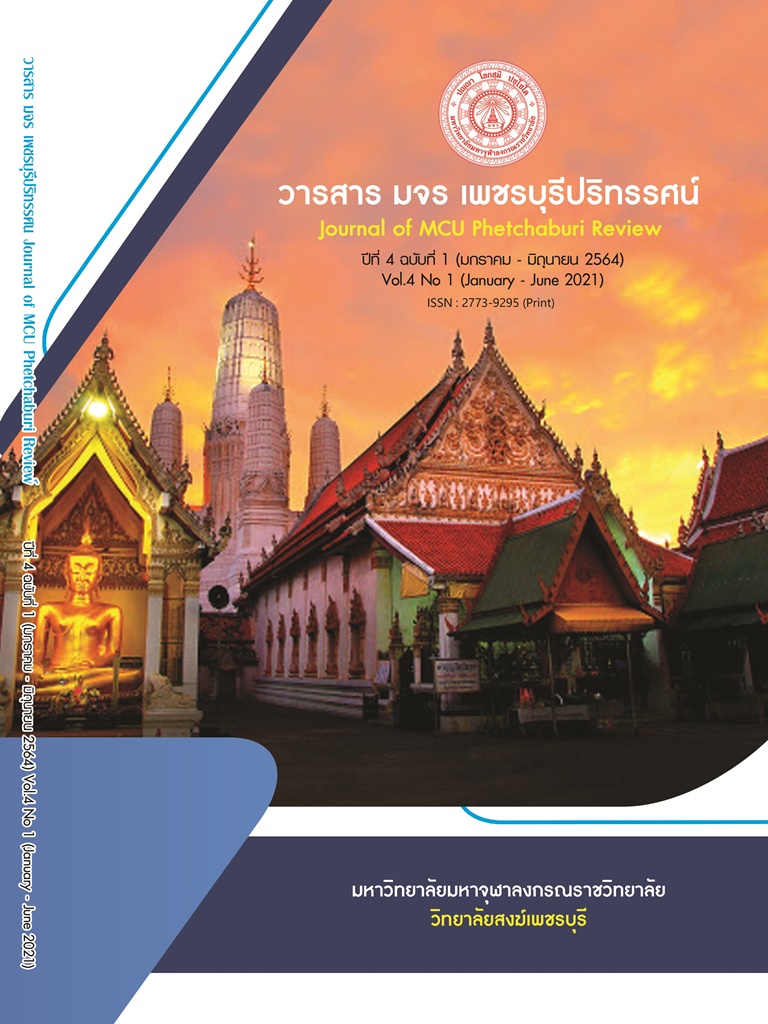THE GUIDELINES FOR PARTICIPATORY ADMINISTRATION OF ANUBAN MAE FAH LUANG SCHOOL UNDER CHIANG RAI PRIMARY EDUCATIONAL SERVICE AREA OFFICE 3
Main Article Content
Abstract
The objectives of this research article were to study characteristics, factors and propose guidelines for developing participatory management of Mae Fah Luang School Under. Chiang Rai Primary Educational Service Area Office, Region 3 is a combined research method. The population used in this research was school administrators. All teachers in the school Board of Basic Education Institutions, 40 representatives of student parents, community representatives, and ten key informants were interviewed using a selective method. The tools used in this research were questionnaires and interview forms. And group chat by analyzing the data, finding the frequency, percentage, and exploring the content-based data, the study results revealed that participation in all four aspects of decision-making practical The school director was very involved. Benefit evaluation aspect moderate participation While the representatives of parents and community representatives had less participation; internal factors were the school director, teachers, parents of students. Essential education committees, community representatives participate in the administrative structure and policies within the school. In terms of external factors, people in the community, parents of students, and local authorities Participate in the social and cultural aspects of the school In terms of the development of the school's participatory management by participating in the appointment of the school board Attend meetings and know the schedule of activities for each school year. Participate in labor representation and become a school advisor, fundraising, listening to problems, and exchanging information with the school to develop participatory management of the school. By co-building, a network of parents and students Participate in the analysis and evaluation since the beginning of the project. during the project, including an assessment when the project is completed
Article Details

This work is licensed under a Creative Commons Attribution-NonCommercial-NoDerivatives 4.0 International License.
References
เจนณรงค์ อุ่นทุลัย และคณะ. (2555). การมีส่วนร่วมของชุมชนในการจัดการศึกษาศูนย์พัฒนาเด็กเล็ก อำเภอหนองกุงศรี จังหวัดกาฬสินธุ์. วารสาร ม.มรม (มนุษยศาสตร์และสังคมศาสตร์), 6(3), 185-196.
บุญชม ศรีสะอาด. (2556). การวิจัยเบื้องต้นฉบับปรับปรุงใหม่. กรุงเทพมหานคร: สุวีริยาสาส์น.
พระราชบัญญัติระเบียบบริหารราชการ กระทรวงศึกษาธิการ พุทธศักราช 2546. (2546). ราชกิจจานุเบกษา เล่ม 120 ตอนที่ 62 ก. (6 กรกฎาคม 2546).
เมตต์ เมตการุณ์จิต. (2553). การบริหารจัดการศึกษาแบบมีส่วนร่วม. (พิมพ์ครั้งที่ 3). กรุงเทพมหานคร: บุ๊คพอยท์.
รัฐธรรมนูญแห่งราชอาณาจักรไทย 2560. (2560). ราชกิจจานุเบกษา. เล่มที่ 134 ตอนที่ 40 ก. (6 เมษายน 2560).
โรงเรียนอนุบาลแม่ฟ้าหลวง. (2562). แผนปฏิบัติราชการปีการศึกษา 2562. เชียงราย: โรงเรียนอนุบาลแม่ฟ้าหลวง.
สราวดี เพ็งศรีโคตร. (2554). รูปแบบการมีส่วนร่วมของผู้ปกครองในการจัดการศึกษาปฐมวัย. วารสารการศึกษาและพัฒนาสังคม มหาวิทยาลัยบูรพา, 7(1), 75-79.
สำนักงานเลขานุการของคณะกรรมการยุทธศาสตร์ชาติ. (2561). ยุทธศาสตร์ชาติ พ.ศ. 2561-2580 (ฉบับย่อ). กรุงเทพมหานคร: สำนักงานเลขานุการของคณะกรรมการยุทธศาสตร์ชาติ.
Cohen & Uphoff. (2014). Promoting Empowerment of People in Advancing Povert Eradication Social Integration and Decent Work for All. New York: UN. Economic and Social Council.
Cronbach, L. J. (1990). Essentials of psychological testing (5th ed.). New York: Harper Collins Publishers.


